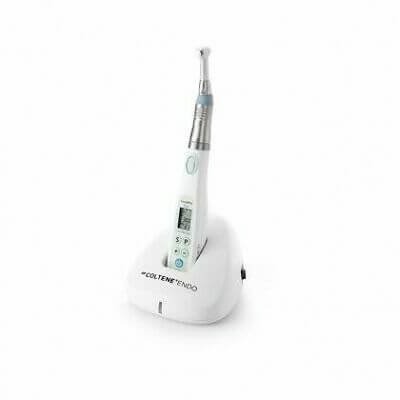Introduction
Single-Visit Root Canal Treatment (RCT) is a dental procedure that involves removing the infected or damaged pulp from the root canal of a tooth in a single visit. Unlike traditional RCT, which can take several appointments to complete, Single-Visit RCT is completed in a matter of hours.
The procedure is often recommended for patients who have mild to moderate tooth decay, infected pulp or have not undergone a root canal treatment before. In Gurgaon, several qualified dentists offer Single-Visit RCT services, making it a convenient and accessible option for patients.
Benefits of Single-Visit RCT
There are several benefits of Single-Visit RCT, including:
Saves time and money
One of the main advantages of Single-Visit RCT is that it saves time and money. Traditional RCT can take several appointments to complete, which means more time off work and higher expenses for the patient. Single-Visit RCT, on the other hand, is completed in one visit, making it a cost-effective and efficient option.
Minimizes discomfort
Single-Visit RCT is a minimally invasive procedure that is performed under local anesthesia. This means that patients do not feel any pain during the procedure and experience minimal discomfort afterward.
Prevents infection
By removing the infected pulp from the root canal of a tooth, Single-Visit RCT prevents the infection from spreading to other teeth or the gums. This helps to maintain the overall health of the patient’s mouth and prevent more serious dental issues from developing.
What Happens During a Single-Visit RCT?
The process of Single-Visit RCT typically involves the following steps:
Consultation with the dentist
Before the procedure, the patient will meet with the dentist to discuss their dental history and current oral health. The dentist will also examine the tooth and take X-rays to determine the extent of the damage and plan the procedure.
X-ray examination
X-rays are essential for identifying the location of the infected or damaged pulp and determining the best approach for the procedure.
Local anesthesia
To minimize discomfort during the procedure, the dentist will administer local anesthesia to the affected area. This numbs the area and ensures that the patient does not feel any pain.
Removal of infected pulp
The dentist will use specialized tools to remove the infected or damaged pulp from the root canal of the affected tooth. This process is done carefully to ensure that all the damaged tissue is removed.
Cleaning and shaping of the root canals
Once the pulp is removed, the dentist will clean and shape the root canals to prepare them for filling.
Filling and sealing of the canals
The final step of the procedure involves filling the root canals with a special material and sealing them to prevent reinfection.
Aftercare Tips
After a Single-Visit RCT, patients are advised to follow these aftercare tips:
Pain management
Patients may experience mild to moderate pain or sensitivity after the procedure, which can be managed with over-the-counter pain relievers. If the pain persists or becomes severe, the patient should contact their dentist immediately.
Oral hygiene
Good oral hygiene is essential for preventing infection and promoting healing. Patients should brush and floss their teeth regularly and use a mouthwash recommended by their dentist.
Follow-up appointments
Patients should schedule a follow-up appointment with their dentist to evaluate the healing process and ensure that the canals are properly sealed. Depending on the case, additional appointments may be needed to complete the restoration of the tooth.
Candidates for Single-Visit RCT
Single-Visit RCT is typically recommended for patients who have:
Mild to moderate tooth decay
Single-Visit RCT is a viable option for patients who have mild to moderate tooth decay, as the procedure can effectively remove the infected pulp from the tooth and prevent further decay.
Infected pulp
Single-Visit RCT is also recommended for patients with infected pulp, as it can effectively remove the infection and prevent it from spreading to other teeth or gums.
Not undergone RCT before
Single-Visit RCT is an excellent option for patients who have not undergone RCT before, as it is a minimally invasive and efficient procedure that can effectively treat the affected tooth.
Conclusion
Single-Visit RCT is a convenient and efficient option for patients who need to undergo root canal treatment. The procedure saves time and money, minimizes discomfort, and prevents infection from spreading to other teeth or gums. If you are considering Single-Visit RCT in Gurgaon, it is essential to choose a qualified dentist who can provide high-quality treatment and aftercare.
Is Single-Visit RCT painful?
Single-Visit RCT is a minimally invasive procedure that is performed under local anesthesia, which means that patients do not feel any pain during the procedure.
How long does Single-Visit RCT take to complete?
Single-Visit RCT typically takes a few hours to complete, depending on the extent of the damage and the complexity of the case.
Are there any side effects of Single-Visit RCT?
Patients may experience mild to moderate pain or sensitivity after the procedure, which can be managed with over-the-counter pain relievers.
How long does the tooth take to heal after Single-Visit RCT?
The healing time for a tooth after Single-Visit RCT varies depending on the extent of the damage and the patient’s overall health. Patients should follow their dentist’s aftercare instructions to promote healing.
How much does Single-Visit RCT cost in Gurgaon?
The cost of Single-Visit RCT in Gurgaon varies depending on the dentist and the complexity of the case. It is best to consult with a qualified dentist to determine the cost of the procedure.

